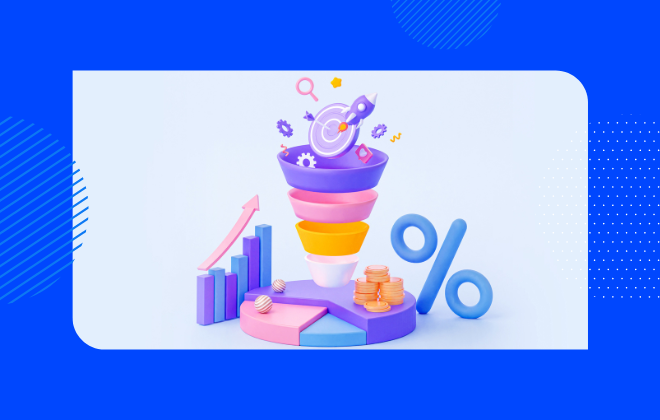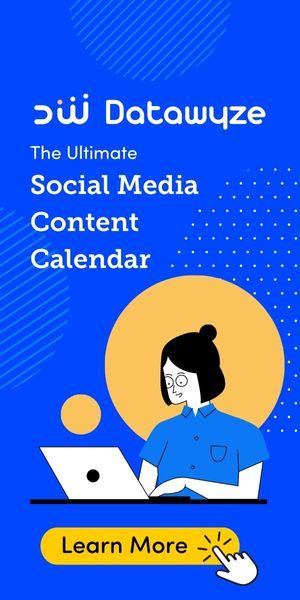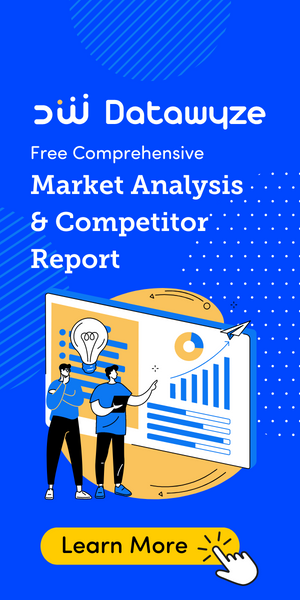In this article, we will explore the relationship between content marketing, the buyer’s journey, and the funnel, and provide must-do strategies for conversion optimization.
The Buyer’s Journey
The Buyer’s Journey is a framework that helps businesses understand the process that potential customers go through before making a purchase. It is divided into three stages: awareness, consideration, and decision.
Awareness Stage
The Awareness Stage marks the initial phase of the Buyer’s Journey, during which potential customers become aware of their problem or need. They engage in research and information gathering to gain a better understanding of their situation.
During this stage, businesses can develop content that educates and informs potential customers about their problem or need. The content should focus on providing value to the target audience and be non-promotional. Examples include creating blog posts, social media content, and videos that tackle common pain points or issues that potential customers might face.
Consideration Stage
The Consideration Stage represents the second phase of the Buyer’s Journey, where potential customers have identified their problem or need and actively seek solutions. They evaluate various options and compare different products or services.
During this stage, businesses can generate content that offers comprehensive information about their product or service, highlighting how it can address the potential customer’s problem or need. The content should be informative and educational, aiming to showcase the features and benefits of the product or service. Examples of content for this stage include conducting product demos, presenting case studies, and hosting webinars that emphasize the advantages of the product or service.
Decision Stage
The Decision Stage represents the final phase of the Buyer’s Journey, where potential customers have made their decision on a solution and are ready to make a purchase. They may compare prices, read reviews, or seek additional information before finalizing their decision.
At this stage, businesses can develop content that motivates potential customers to take action and make a purchase. The content should aim to create a sense of urgency and encourage them to act promptly. Examples of content for this stage include time-limited offers, discounts, and special promotions designed to generate a sense of urgency and entice potential customers to complete their purchases.
By understanding the Buyer’s Journey, businesses can tailor their content to meet the specific needs of potential customers at each stage. This approach helps to build trust, establish relationships, and ultimately drive increased customer acquisition and retention.
The Funnel
The marketing funnel is a visual representation of the buyer’s journey, from the initial awareness stage to the final decision stage. It is a useful tool for tracking potential customers and identifying areas for improvement in the sales process.
The funnel is divided into four stages: awareness, interest, desire, and action. The awareness stage is when potential customers become aware of a product or service. The interest stage is when they begin to engage with the product or service and show interest. The desire stage is when potential customers express a desire to purchase the product or service. The action stage is when they make the purchase.
Content Creation and the Funnel
Content marketing and the funnel are closely intertwined. By creating content that addresses each stage of the funnel, you actively guide potential customers toward making a purchase.
- In the awareness stage, focus on creating brand awareness and establishing industry authority. Create blog posts, social media content, and informative videos that provide value to the target audience.
- In the interest stage, provide detailed information about the product or service. Showcase product demos, case studies, and webinars that highlight its benefits.
- In the desire stage, create urgency and incentivize potential customers to purchase. Offer limited-time deals, discounts, and special promotions.
- In the action stage, ensure a seamless purchasing experience and encourage repeat purchases. Send thank-you emails, conduct follow-up surveys, and foster customer loyalty.
Content Strategy and the Funnel
Creating content that addresses each stage of the funnel is essential, but it’s not enough. To be effective, your content needs to integrate into a broader content strategy that considers your target audience, business goals, and competitors.
To create an effective content strategy, begin by defining your target audience. Who are they? What are their pain points? What content do they consume? With a clear understanding, create content that resonates and addresses their needs.
Next, define your business goals. What do you want to achieve with your content marketing? Increase brand awareness, generate leads, or drive conversions? Once defined, conduct a thorough competitor analysis. What content do they create? What topics do they cover? How do they engage their audience? Identify market gaps and opportunities for differentiation.
With this information, you can create a content calendar that outlines the topics, formats, and distribution channels for your content. This will help you ensure that your content is aligned with your business goals and the needs of your target audience.
Conversion Optimization
Creating high-quality content that addresses each stage of the funnel is essential, but it’s not enough. To maximize the effectiveness of your content marketing efforts, you need to optimize your conversion rates.
Conversion optimization involves identifying areas of your funnel that are underperforming and implementing strategies to improve them. This can be achieved through A/B testing, website optimization, and lead nurturing.
A/B testing involves creating two versions of a page, such as a landing page or an email, and testing them to see which one performs better. By measuring metrics such as click-through rates and conversion rates, you can identify the version that is more effective and implement it.
Website optimization involves making changes to your website to improve its usability and effectiveness. This can include optimizing your website’s navigation, improving page load times, and creating clear and compelling calls to action.
Lead nurturing involves building relationships with potential customers and guiding them through the buyer’s journey. This can be achieved through email marketing, social media, and personalized content.
Customer Retention
While customer acquisition is essential, customer retention is equally important. To maximize the lifetime value of your customers, you need to create a positive customer experience that encourages loyalty and repeat purchases.
This can be achieved through personalized content, excellent customer service, and loyalty programs. By creating content that resonates with your customers and provides value, you can build trust and establish a lasting relationship.
Audience Engagement
Engaging with your target audience is essential for creating a successful content marketing strategy. By understanding their needs and preferences, you can create content that resonates with them and encourages them to take action.
This can be achieved through social media, email marketing, and interactive content. By creating a dialogue with your audience, you can build relationships and establish a loyal following.
Brand Awareness
Creating brand awareness is essential for establishing authority in your industry and attracting potential customers. By creating high-quality content that provides value to your target audience, you can build trust and establish your brand as a thought leader.
This can be achieved through guest blogging, social media, and content syndication. By creating content that is shared and promoted by others, you can increase your reach and establish your brand as a leader in your industry.
Conclusion
Content marketing is a powerful tool for driving customer acquisition and retention, but it needs to be aligned with the buyer’s journey and the marketing funnel to be effective. By creating content that addresses each stage of the funnel, implementing conversion optimization strategies, and focusing on customer retention, you can create a successful content marketing strategy that drives business growth.
By combining the targeted approach of performance marketing with the storytelling and engagement tactics of content marketing, businesses can achieve more impactful and effective results in their marketing efforts. Performance marketing focuses on driving specific actions or conversions, such as clicks, leads, or sales, through targeted and measurable tactics. At Datawyze, we specialize in creating effective content marketing strategies that drive business growth.
We recently worked with a college/university student union to optimize their customer experience (CX) across the student journey. By creating a content marketing strategy that was aligned with the Buyer’s Journey, we were able to provide relevant information to potential students at each stage of the journey, from awareness to decision. By focusing on creating engaging and informative content, we were able to establish the student union as a trusted authority in their industry, ultimately leading to increased student enrollment and retention.
To learn more about how we were able to optimize the CX for this student union, download our case study today. If you need help with your content marketing efforts, reach out to Datawyze, a full-service digital marketing agency that specializes in creating effective content marketing strategies.





